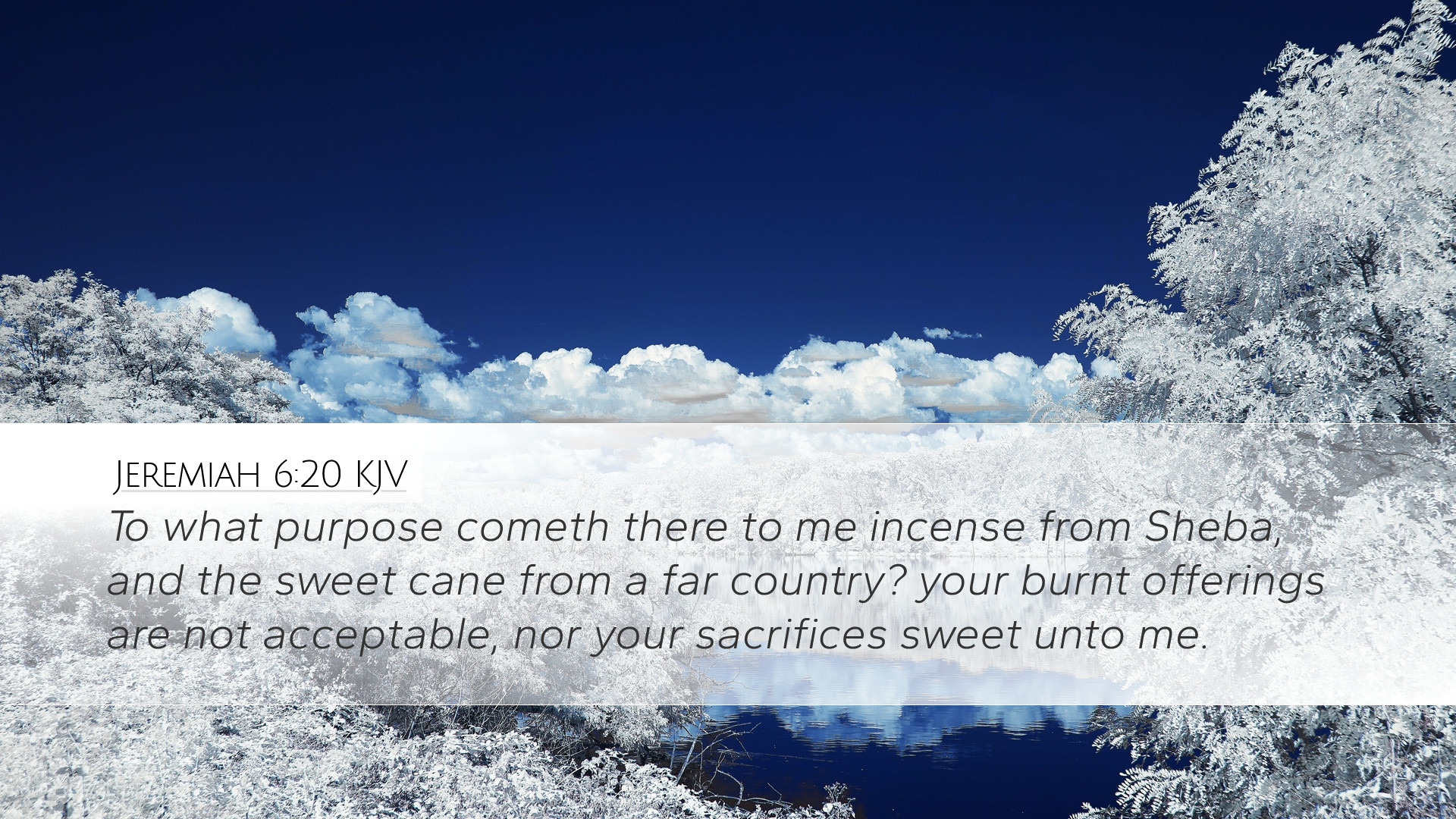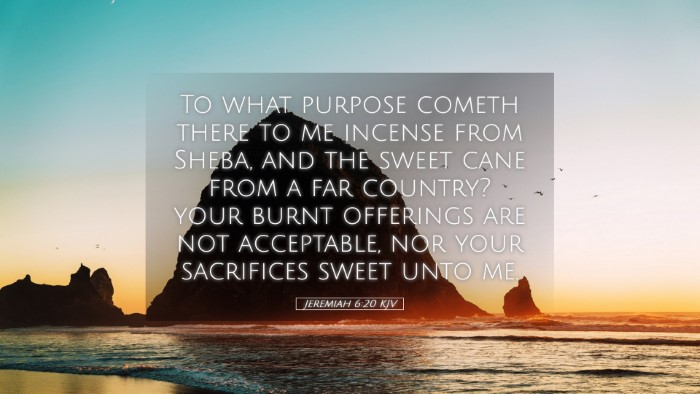Bible Commentary on Jeremiah 6:20
Text of Jeremiah 6:20:
"To what purpose cometh there to me incense from Sheba, and the sweet cane from a far country? your burnt offerings are not acceptable, nor your sacrifices sweet unto me."
Contextual Background
In this passage, the Prophet Jeremiah conveys God's message of rejection towards the rituals and sacrifices made by the people of Judah. At this time, the nation was steeped in sin and idolatry, and God desired genuine repentance rather than perfunctory worship. This context is crucial in understanding the weight of God's complaint against His people.
Insights from Commentators
Matthew Henry's Commentary
Matthew Henry emphasizes that the incense and offerings, though extravagant and brought from distant lands like Sheba, are not what God desires. He highlights the significance of true worship versus mere ritualistic offerings. Henry articulates that God is more concerned with the heart's condition than the outward display of religious practices. He notes:
- The futility of ritual worship when it is divorced from moral integrity.
- The necessity of a sincere heart in approaching God.
- God’s disdain for offerings if accompanied by a lack of obedience and righteousness.
Albert Barnes' Commentary
Albert Barnes further elucidates the meaning of this verse by pointing out the cultural importance of incense and sacrifices in ancient worship. He argues that the offerings from Sheba, known for their quality, symbolize the people's attempts to externalize their faith without inner commitment. Barnes notes:
- The irony of presenting lavish gifts when the heart is far from God.
- God's rejection of offerings as an indictment against the superficiality of the people's faith.
- The reference to "sweet cane" reveals a desire for authenticity in worship rather than mechanistic practices.
Adam Clarke's Commentary
Adam Clarke offers a nuanced understanding, adding historical and geographical insights about the regions mentioned. He elaborates that Sheba connoted wealth and luxury, suggesting that the Jews were relying on their ability to procure extravagant offerings as a means to appease God. Clarke asserts:
- That God’s acceptance cannot be bought with expensive offerings.
- A call to the people to return to genuine spirituality, linking worship with ethical living.
- The inherent understanding that true worship is holistic, engaging the mind, heart, and action.
Theological Implications
This verse and the accompanying commentaries underscore several theological themes significant for pastors, students, and theologians:
- The Nature of True Worship: Worship is not merely about formality or tradition but involves authenticity and righteousness.
- The Need for Repentance: Before bringing offerings to God, there is an imperative for clarity in one’s spiritual state.
- Heart versus Ritual: This scripture illustrates the clash between ritualistic practices and heartfelt devotion.
Application for Today
For contemporary readers, Jeremiah 6:20 serves as a profound reminder of the dangers of empty worship. The church must examine its practices and prioritize integrity and authenticity over mere observance of religious traditions. Three key applications emerge:
- Encouraging Authentic Spiritual Practices: Leaders should foster environments where heartfelt worship is encouraged, rather than merely compliance with tradition.
- Holistic Approach to Worship: Teach congregants the importance of aligning their lives and actions with their worship expressions.
- Call to Personal and Corporate Repentance: Emphasize that repentance is not only an individual act but also a collective responsibility of the church to align with God's heart.
In conclusion, Jeremiah 6:20 boldly challenges believers to reflect on their worship practices, encouraging a movement towards deeper relationship with God grounded in authenticity and moral living.


